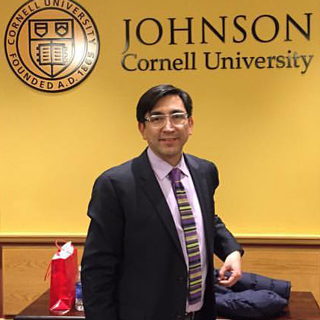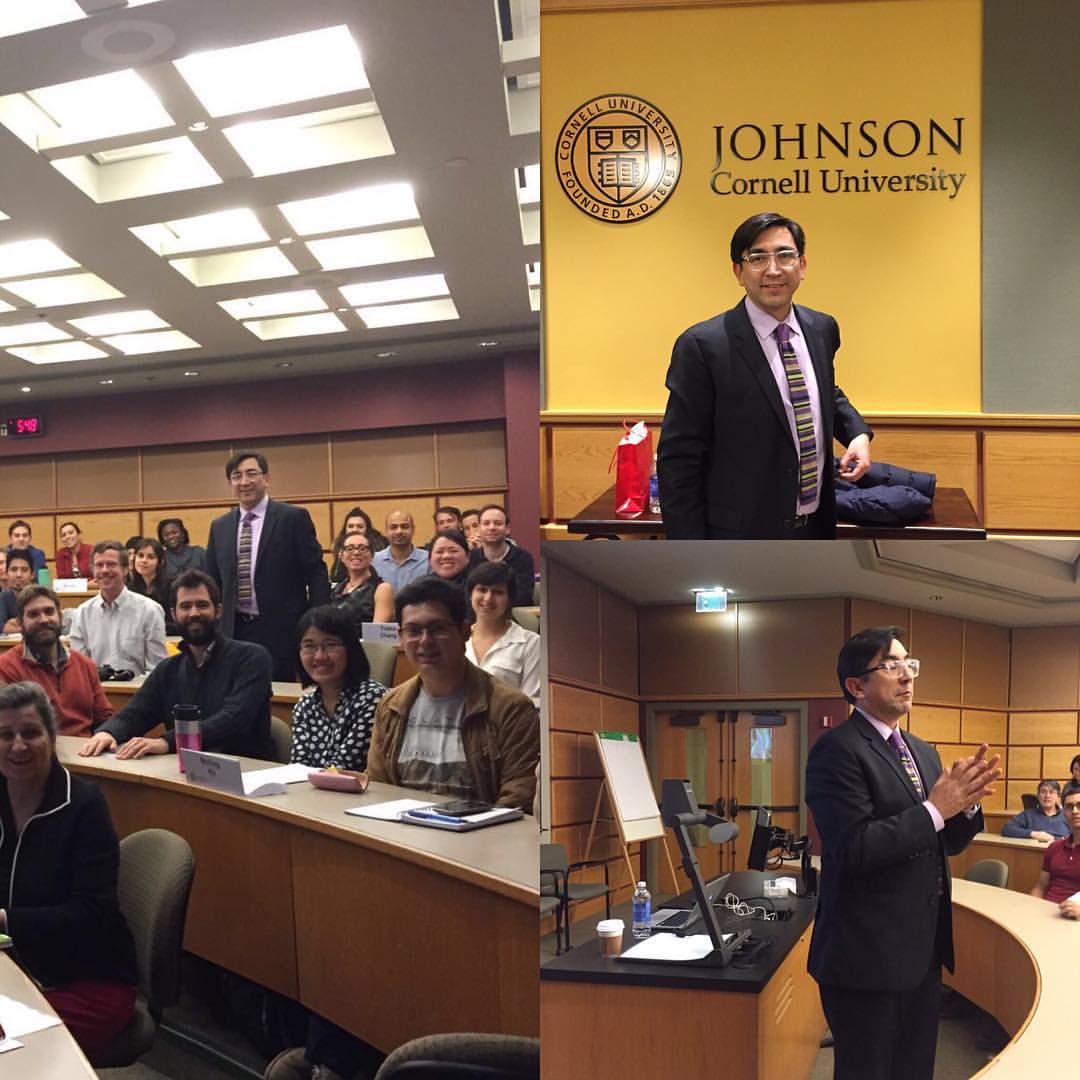Combatting Poverty with Technology
03/16/2016
Diego Molano, Former Minister of ITC in Colombia, discusses the program that helped millions

By Katie O’Brien ‘16
When Diego Molano took office as Colombia’s Minister of Information and Communication Technologies in 2010, 38 percent of Colombians were living under the poverty line. By 2014 that number had fallen to 28.5 percent, according to the World Bank (see Colombia/Data). Noting that about 2.5 million people have escaped poverty in the last five years, Molano told the story of one important contributing factor in this transformation: the success of his program to combat poverty through technology, “Vive Digital.”
Molano, an economic and electronics engineer who served as Colombia’s Minister of Information and Communication Technologies until May 2015, spoke about Vive Digital when he came to campus Feb. 29 as a guest lecturer in a class offered by Emerging Markets Institute Academic Director Lourdes Casanova: Leaders in Emerging Markets. Molano discussed the logic behind Vive Digital and the reasons for the program’s success, emphasizing the importance of fostering access to technology worldwide.
The goal of Vive Digital was to “maximize access to the Internet” and to teach people how to use technology to solve their problems. “The single most important problem in Colombia is poverty,” said Molano. “There is a very strong correlation between Internet usage and poverty reduction because the Internet opens up a lot of opportunities to everybody.”
Through Vive Digital, the government deployed high-speed, wireless 4G LTE technology to rural areas that previously were not connected to data networks, reducing taxes and regulations to incentivize telecom companies to improve the country’s infrastructure and bring more mobile operators into the market. “Today, in every single town in Colombia, people enjoy the exact same technology you have here,” said Molano “Actually, a little bit better because the service here is quite weak,” he joked.
But, he emphasized, simply increasing connectivity was not enough; Vive Digital also focused on creating a culture around technology usage, including giving children access to technology and teaching them how to use it. “With access to the Internet, kids in the middle of nowhere can have access to the same knowledge and resources as kids in wealthy countries,” he said. To this end, the government created schools for parents to learn about the risks and rewards of technology for their kids, and a program to train teenagers in how to use technology to build a business. They also gave tablets to every public school. “We wanted to ingrain the mentality that they are not for games, they are a tool to learn,” he said.
Vive Digital also focused on showing small businesses how to use technology to increase their profits. Molano said that just seven percent of companies were connected to the Internet; when surveyed as to why, the majority simply did not feel they needed it. According to Molano, this was a result of the fact that Silicon Valley executives do not understand the different technology needs of those in developing countries; the majority of apps and programs are built with the rich in mind, not the poor. “The issue is giving them value, real value. The value is not in improving connectivity, it’s helping them improve their daily cash flow.” With that in mind, Molano said, “we focused on creating applications” that would help improve businesses’ efficiency. “If there are applications, there are users. We went from seven percent to 74 percent Internet usage among SMEs.”
By maximizing Internet usage and building a culture around technology and entrepreneurship, Vive Digital has had a huge social impact on Colombia — one that Molano is confident will continue translating into economic impact. “The only way to keep the momentum going is by creating critical mass. We created a huge movement of people demanding technology.”

Molano, who enjoyed a long career as an executive in the tech industry before becoming Minister of Information and Communication Technologies, attributes the success of Vive Digital, in part, to his ability to understand the needs of the private sector. Noting that the public sector suffers from lack of talent, he emphasized the importance and rewards of this work: “You guys have the talent, you came to Cornell to study,” he said. “You’re going to have the ability to transform the country from the public sector. From the private sector, it’s very hard to do that.”
In 2014, the Washington Post published an article titled “What Washington can learn from Colombia’s genius plan to lift millions out of poverty.” Molano said that in the United States, technological growth has only widened the gap between the rich and the poor, and that “none of the candidates in the U.S. election talk about technology and how to use it to solve the rest of the problems.”
Molano’s presentation was an important reminder of the power of technology to effectively address poverty, and thereby achieve greater justice and equality, not just in the Global South, but in the rest of the world.
